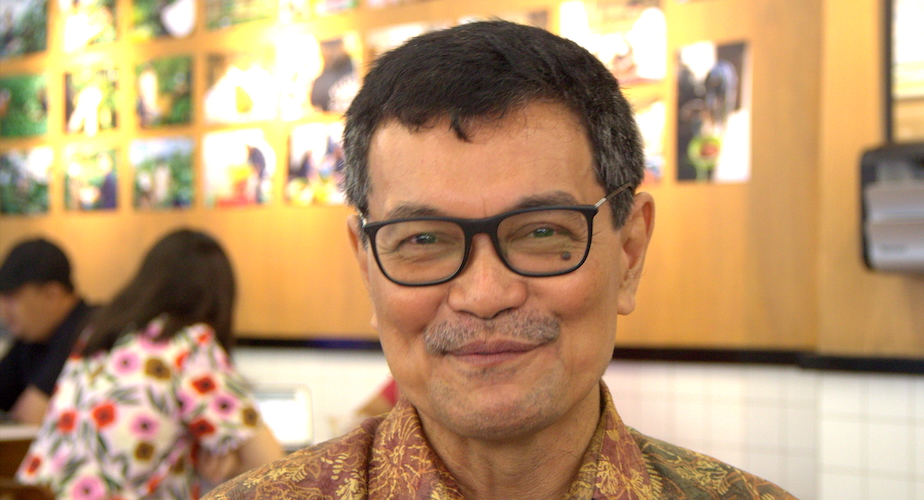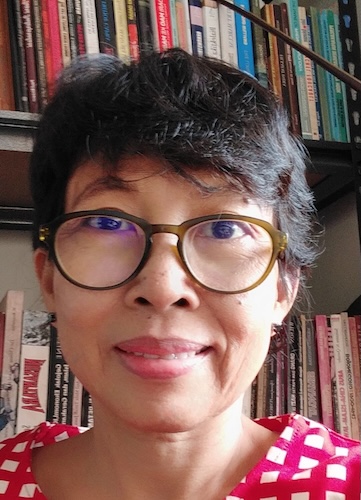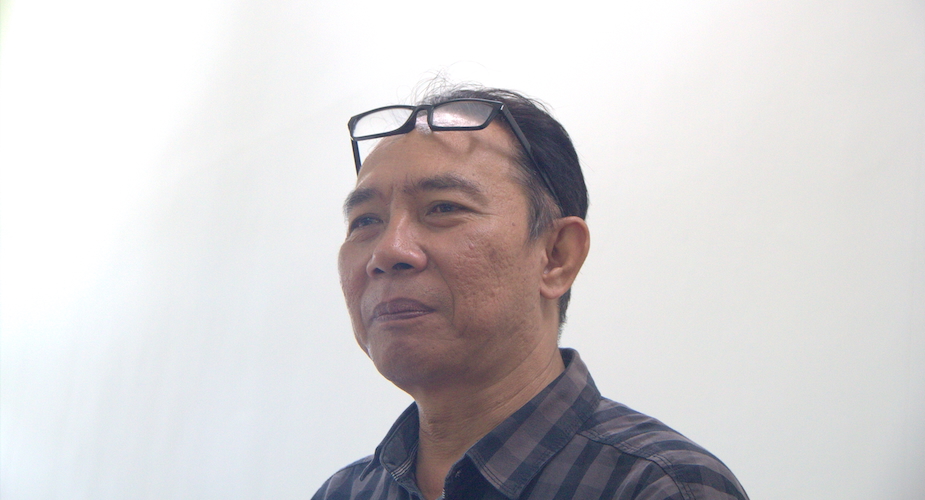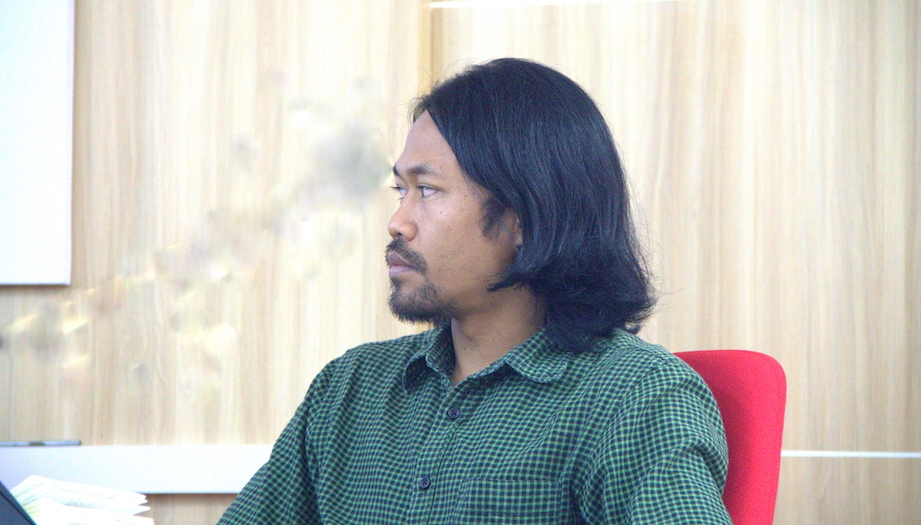Inspired by good ideas, 17 authors dare to hope for an ecological future in Indonesia
In China, 80 per cent of people last year said Yes when asked if they want their country to replace coal, oil, and gas with renewable energy, such as power from the wind or sun. In Australia, only 68 per cent said Yes, and in the US, 53 per cent. A lot of other comparative survey data tells the same story: people in the global South are more aware how serious the climate crisis is than those in the rich global North. Poorer nations like China, India, Kenya, or Bolivia are also more ready to make sacrifices to pay for the transition. Perhaps the poor are used to looking unpleasant realities in the face, even while knowing they are not to blame. (This also shows how wrong it is to think poor countries are too busy fighting poverty to care for the environment). The rich, meanwhile, are presumably so attached to their consumerist lifestyles they readily let themselves be deluded by the fossil-fuel lobby. Americans are the world’s climate-denialist champions.
Strangely enough though, Indonesian attitudes are more like those in America than in China. In 2010, only 33 per cent of Indonesians were ‘prepared to pay higher prices to address global climate change’. In China, 88 per cent were. Even in the US the figure was higher: 41 per cent. True, since then, Indonesians have started worrying about the effect of climate change on future generations – they now do so more than Australians. But they still have a high degree of trust that the government has got things under control, which is far from the truth. Why? Is this down to the Americanisation of Indonesian culture dating back to the New Order? Or is extractivist propaganda by a neoliberal, coal-exporting elite to blame?
Bacaan Bumi
In any case, lots of room for self-education, and this is where Bacaan Bumi comes in. The story for this project starts with Gadjah Mada University’s history department. In August 2023 they brought together students and activists from all over the country for their first environmental history summer school. I was there and saw how motivated these young intellectuals were to do something positive.

I also realised they have had little exposure to the ‘environmental humanities.’ Like humanities and social science students everywhere, they were brought up to think only engineers and atmospheric scientists know about the climate crisis. They felt inadequate – they were ‘only’ historians.
Yet as we talked about various topics in the environmental humanities, an awareness began to dawn. This is a human crisis, not a technical one! We know something about humans that engineers don’t. At least in Europe, all the big civilisational transformations of the past – the Renaissance, the Enlightenment, the Romantic Movement - have come from the humanities, not from the engineers. At least we have the courage to ask some serious questions, where engineers are happy to sign off and just start calculating.

A plan emerged. Let’s write a series of short chapters for Indonesian students of the humanities and social sciences interested in developing their ecological thinking skills. The focus would be on positive new ideas, not on technical problems. I would write chapters introducing the international literature on various topics; Indonesian friends would write provocative essays on what that topic meant for Indonesians in particular. Some of these friends I have known for many years – a few were at the 2023 summer school – while others were completely new to me.
As I travelled around universities in Java that month I kept on meeting people who had the same idea.
- History students in Malang turned out to have strong environmental interests too.
- There was a large, conspiratorial group discussion about Ecosocialism at an improvised café in a forest just outside Semarang.
- Indonesia’s Greens Party - Partai Hijau Indonesia – had a circle of highly committed activists in Jakarta, even though they are too small to participate in national elections.
- The following year I got to know circles of economists, in Bandung, then in Yogyakarta. They are social scientists rather than humanities people, but for me this was a first. We talked about Degrowth, and Ecological Economics. Some were politely sceptical, but others were open to ideas that did not appear in their standard textbooks.
- At a swish café in Jakarta appropriately called Filosofi Kopi I became reacquainted with someone I had not seen for years, and discovered she was now an extremely dedicated Ecofeminist with a PhD in philosophy.
- She in turn introduced me to a philosophical colleague belonging to an Islamic network of radical environmental activists. Coming from secular Australia I was surprised to learn how committed religious influencers were from the left flank of both Muhammadiyah and Nahdatul Ulama. One of them brought me along to a proposed Australian gold-mining site at Trenggalek in East Java, and we ended up doing an Inside Indonesia edition on mining
- Back at Gadjah Mada University I got to know the Philosophy faculty, and was astonished at the thoroughly radical ideas they were developing.

- Upon returning to Malang I went in search of psychologists, another discipline I knew nothing of, and found them at the Muhammadiyah University. We talked about why young people seemed to feel so little anxiety about the climate crisis. One of them blamed his own religious leaders, who are all into business and keen not to awaken sleeping protest dogs.
- At Brawijaya University in the same town of Malang I met with a large group gathered around the candidate for rector of the university. We had an impromptu workshop on the ‘ecological university’ that at one point was chanting ‘Universitas Ekologis!’, with fists pumping the air. Unbelievable.
- Back home in Australia I still had not yet found anyone, at any university, brave enough to call for a complete stop to Indonesia’s huge coal export business. Then someone introduced me to the anti-mining group Jatam, for whom this message was core business.
Slowly a network began to emerge of people who did not know each other – the walls between faculties and universities are high in Indonesia - yet who discovered they had much in common when it came to thinking about Mother Earth.

Chapters began to trickle out onto the internet – generously hosted by Inside Indonesia under the leadership of Jemma Purdey. If it ever became a book, she told me, she wanted Inside Indonesia to be a co-publisher. Readers in Indonesia said they were printing them out and handing them to their students to read. Others studied them at home.
Andreas Haryono is chief editor at Yayasan Obor Indonesia, the country’s major academic publishing house. We knew each other well from various book ventures in the past. A real intellectual, he and I had enjoyed many conversations about a human response to the climate crisis. When he heard about this emerging network, he gave it his full support. It is thanks to him, as well as Ibu Kartini and her team at Obor, that Bacaan Bumi is now about to come off the press as a book you can hold in your hands – co-published with Inside Indonesia magazine.
Andre Haryono and I will be traveling around Indonesia in November and December, meeting with all the authors of this book, and with the students on their campuses. We will be talking about all the many topics in the book – from Eco-Psychology to Eco-Socialism, from Ecological Economics to Deep Ecology, from Degrowth to the morality of Animals, from Eco-Feminism to Panpsychism. The timetable is below.
Please come! We want you to be part of this. Together we can educate ourselves about the positives awaiting us in an ecological future, and we can help open hearts and minds around this vast country to ‘ecological thought.’
Gerry van Klinken (gvanklinken@gmail.com) is a member of Inside Indonesia’s editorial board, and editor of Bacaan Bumi: pemikiran ekologis untuk Indonesia (Jakarta: Yayasan Obor Indonesia, 2025). The book launch schedule is available here. For further details, contact Gerry on Whatsapp +31 621-480-539, or Andre Haryono on Whatsapp +62 812-8881-1157. (An English version of the book, containing only Gerry’s essays and entitled Earth Readings, is hopefully coming out early 2026).












